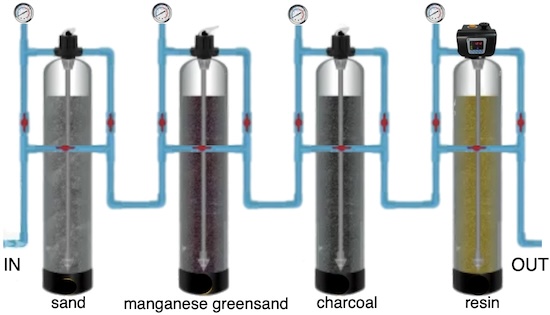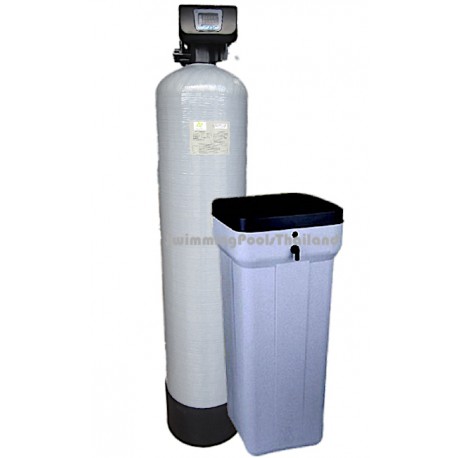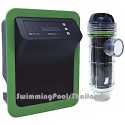In some cases, chemical water balance for pH and alkalinity is not sufficient for very hard water, particularly well water, which can seriously damage pool equipment if not treated. Deposits of limescale can be difficult to remove.
Ion Exchange Hard Water Treatment: Ion exchange is a process that is extremely effective for water softening and balancing the mineral content of water, however, it also helps to regulate alkalinity of water, removes harmful ions, and disinfects water.
It is a chemical process by which undesired ions dissolved in water such as nitrate, sulphate and arsenic are exchanged with other ions which have a similar charge. Advantages of Ion exchange water filter systems are:
• Significantly faster results Ideal for long term applications and large scale water treatment requirements.
• Easy to install and easy to maintain.
• No addition of others chemicals and disinfectants for softening the water.
Brine regenerated programmable ion exchange:
Complete systems. Automatic back washing and regeneration.
The system comes with a bobbin wound weather resistant glass fibre tank, an easily removable fully programmable multi-port valve, brine tank, and all accessories required for installation and set up including resin beads and salt.
Well water in Thailand is often exceptionally hard. Water needs a certain amount of calcium hardness. With too little calcium, the water will eat away tile grout, tile adhesive, and any plaster or cementitious products in order to saturate its natural level. However, too much calcium can cause scaling and other issues, particularly in saltwater chlorinator cells. Calcium Chloride is used to raise the calcium hardness, but in cases of very hard water the only effective way to reduce the level of calcium carbonate is to install an ion exchange system.
A fully programmable automatic valve takes care not only of backwashing, but also of the essential regeneration of the resin beads.
Normal pool salt dissolved in the brine tank is drawn into the filter at regular intervals and the salt removes the calcium carbonate accumulated by the resin beads. The beads are then backwashed and rinsed and the system is returned to the normal water softening cycle.
One filling of resin beads will last for 10 to 15 years
The resin bed of a water softener is a collection of thousands of resin beads located in the unit's tank. When you turn on the tap, water flows into the water softener and passes through the resin bed, where it comes in contact with the plethora of resin beads in the tank. During the process, the resin beads trap calcium, magnesium, and other minerals, allowing only soft water to flow into your holding tank.
Professional installation recommended: ask us for details.
Typical full filtration set up









